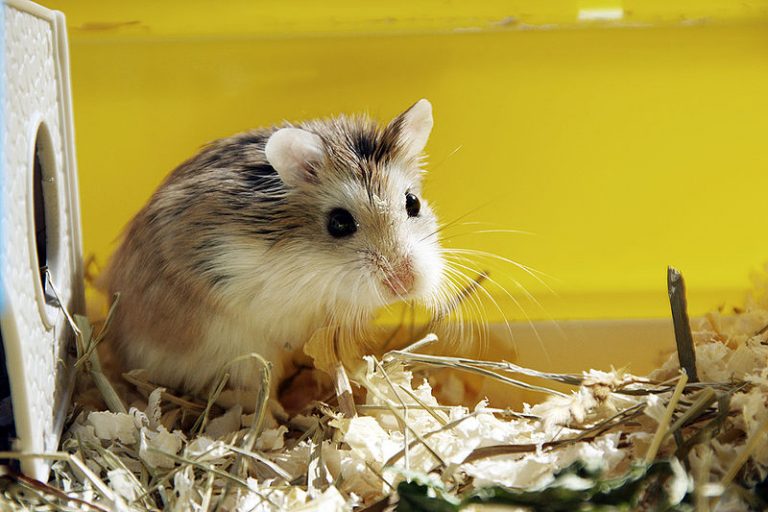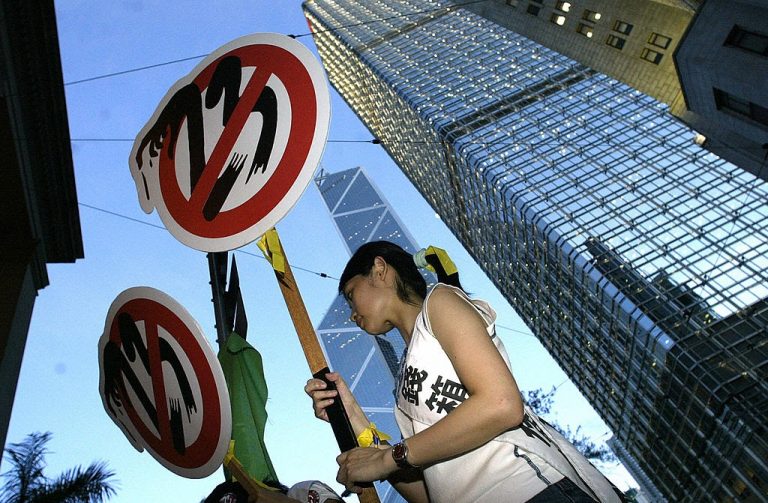Hong Kong authorities announced today that about 2,000 hamsters and other animals will be killed after some of the rodents tested positive for COVID-19 at a local pet store and potentially infected a worker there. It also urged people to exercise caution when interacting with pets in order to prevent further spread of the virus.
The Chinese territory announced the culling after 11 rodents imported from the Netherlands tested positive for the virus at the Little Boss pet store, according to state broadcaster RTHK.
“Evidence shows that the hamsters are infected with the COVID-19 virus. It is impossible to quarantine and observe each of them and their incubation period could be long,” Leung Siu-fai, director of Hong Kong’s Agriculture, Fisheries and Conservation Department said on Tuesday.
HK authorities: hamsters will be ‘humanely put down’
Pet shops and owners were instructed to turn over their hamsters, which were to be “humanely put down in order to cut the transmission chain” of the disease.
“Pet owners should keep a good hygiene practice, including washing hands after touching the animals, handling their food or other items, and avoid kissing the animals,” Leung told reporters.
According to investigations, the infected worker from the pet store was also the first person in Hong Kong to test positive for the Delta variant without a clear transmission path. Health authorities are now investigating the case as a possible instance of animal-to-human transmission, Asia Nikkei reported. Two additional human infections — one confirmed and one preliminarily positive — have also been linked to the pet store.
Success
You are now signed up for our newsletter
Success
Check your email to complete sign up
People who bought hamsters after Dec. 22 were also instructed to hand the pets over to authorities and the outbreak resulted in mandatory quarantines for about 150 customers, officials said.
“We have assessed the risks of these batches as relatively high and therefore made the decision based on public health needs,” Leung said, adding that the imports of rabbits, chinchillas and other small mammals will also be banned.
Former flight attendants face potential jail time for breaking quarantine
In addition, Hong Kong police arrested two former Cathay airlines flight attendants on grounds of “breaching COVID-19 rules.” The former employees were reportedly linked to a local outbreak of the Omicron variant and face a fine and up to six months of jail time if convicted, Bloomberg reported.
Hong Kong police did not name the airline in their statement but the city’s chief executive Carrie Lam later identified the two as former staff of Cathay Pacific. Lam said on Tuesday that “there is evidence showing they have violated [epidemic regulations.]”
The statement from Hong Kong police added that the two “had conducted unnecessary activities” on Dec. 25 and 27 when they were supposed to be under home quarantine after returning to the city.
China’s ‘Zero-COVID’ mandate bleeds into Hong Kong
Authorities in Hong Kong have adopted a “zero-COVID” strategy, aligning its coronavirus measures with China’s stringent regulations as it seeks to resume quarantine-free travel.
In addition to reporting 385 positive cases of the virus in the past 14 days, most of which were “imported” from other countries, officials said in a news release on Jan. 14 that flights from the U.S. would also be banned until further notice.
Meanwhile, China has enacted some of the strictest methods at combating the virus, locking down entire cities after only a few cases are confirmed. The cities of Xi’an and Yuzhou currently remain under lockdown since late December, with residents reporting a dangerous shortage of food and supplies. Tianjin, a city of 14 million near Beijing, has also seen lockdowns as the authorities prepare for the Olympic Games.
Although the communist regime has claimed that its policies and Chinese vaccines have brought the virus under control, many people in China and abroad have shown considerable doubt as to the veracity of the government’s data as well as the effectiveness of Beijing’s heavy-handed quarantine measures.
READ MORE:
Winter Olympics Lead to More Extreme COVID-19 Prevention Measures in Xi’an
In China, Employees Who Allegedly Breach COVID-19 Rules Get Jail













